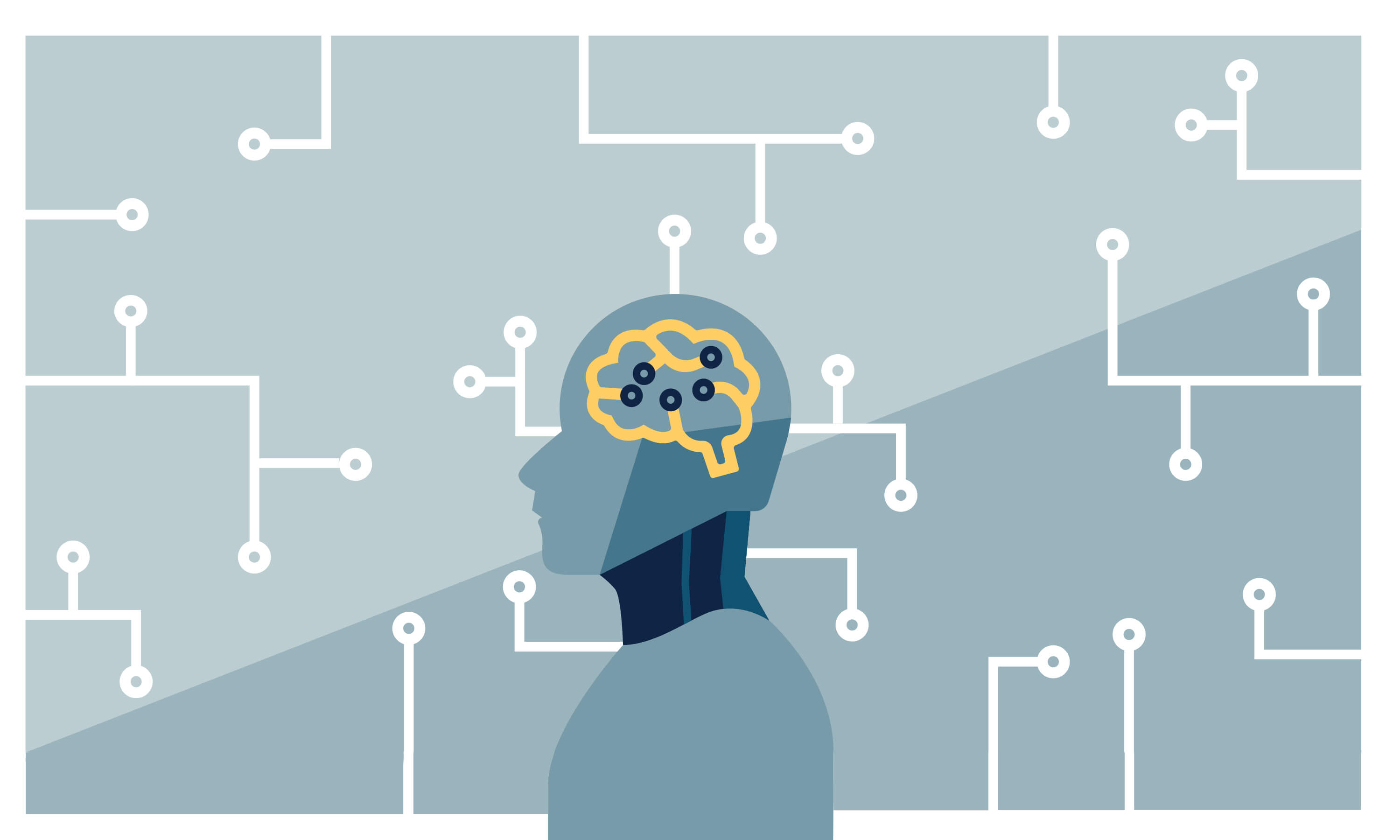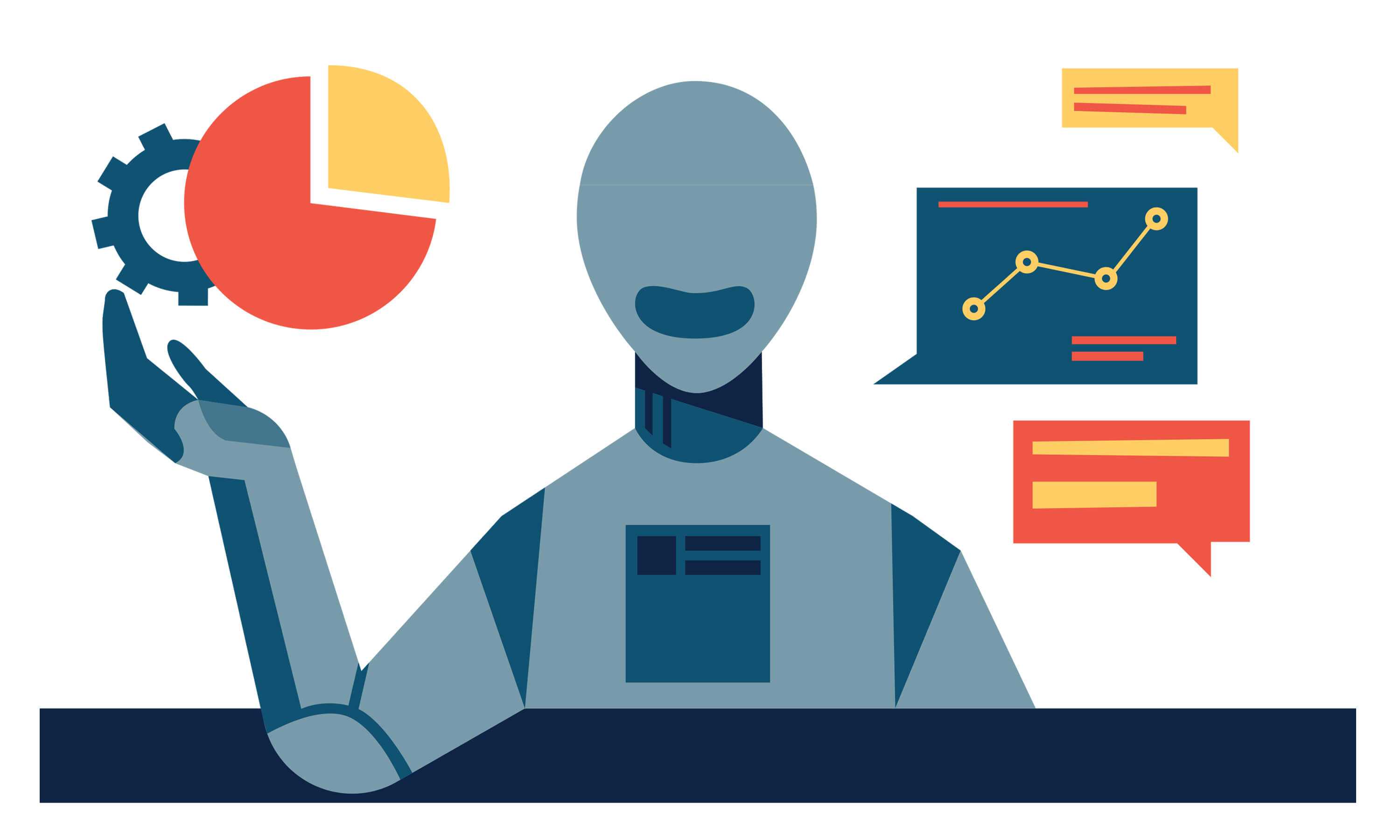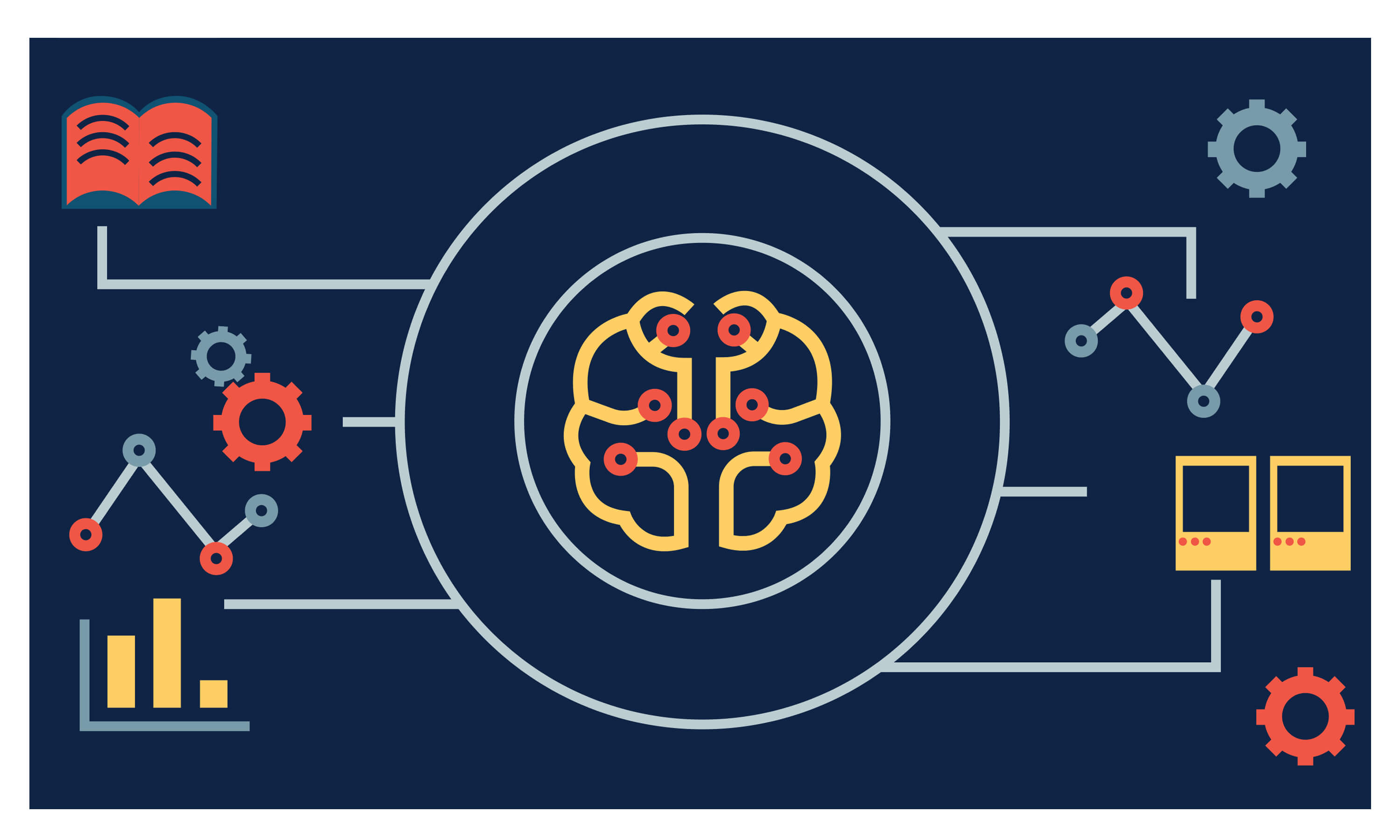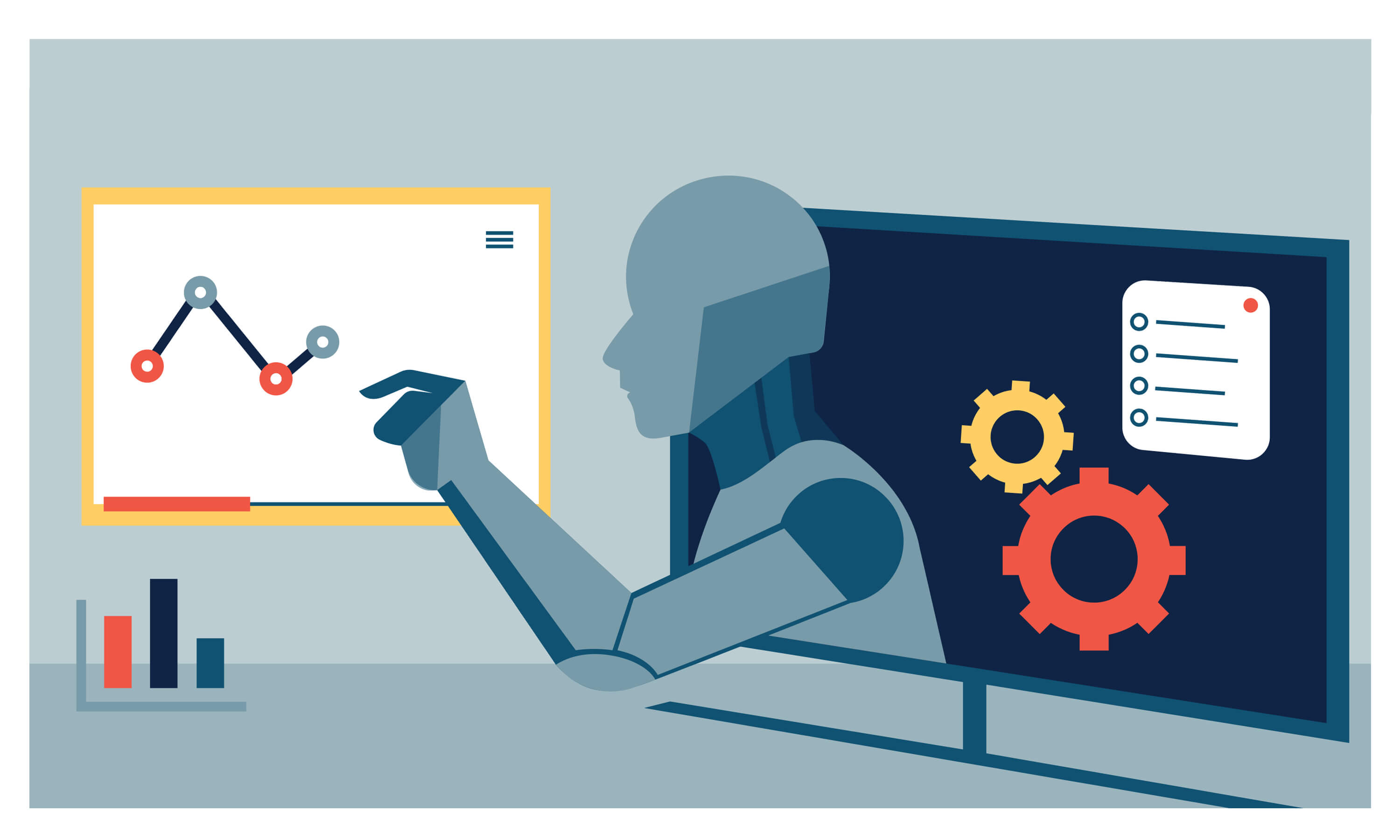
Artificial Intelligence in Marketing
In today's world, artificial intelligence isn't just a buzzword - it's a driving force reshaping the way we work.

Over the past half-decade, use of AI stayed steady at around 50 percent until 2023, when adoption rates surged to 72% across industries, and marketing is no exception.
The question now isn’t whether you’ll use AI, but how well you’ll harness its power to stay ahead of the competition. Here we’re breaking down AI basics, covering everything from training to legal hurdles.
 What is artificial intelligence?
What is artificial intelligence?
Artificial intelligence (AI) is a rapidly developing field of computer science with numerous and diverse applications. Essentially, it’s the ability of computers to perform tasks that typically require human intelligence such as learning, analyzing, creating, and decision-making. While AI can streamline your operations and lighten your workload, it’s important to consider the ethical, legal, and security implications of AI usage, which we’ll cover later.
AI starts with training
At its core, AI is just an amalgamation of algorithms trained on data. But for these models to generate the most accurate results, they need to be fed the right information.
That’s where data training comes in. Data training is the process of feeding large quantities of data to an AI model to help it learn and improve. It's like teaching someone a new skill by providing them with examples and explanations so they can recognize patterns and understand context.
During the training process, the data is fed into the AI model, and the model analyzes it to identify patterns and relationships. Imagine showing someone pictures of different animals and explaining what each one is. Through repeated exposure to the training data, the AI model learns to recognize patterns and make predictions based on the information it has been given.
But if you train your model on half-baked insights and disorganized data, you’ll end up with flawed responses. The quality of the training data significantly impacts the performance of the AI model, and clean, accurate, unbiased data is essential.
The amount of data is also important. The more data an AI model is trained on, the better it will perform. The AI model itself is basically a computer program designed to perform a specific task, like recognizing objects in an image or predicting future sales.
So what kind of data should you be inputting? Data can be anything from text and images to videos and numbers – any format relevant to the task the AI needs to learn. Training data can be labeled or unlabeled. Labeled data includes associated information, such as a picture of a dog labeled as "dog." Unlabeled data requires the AI model to identify patterns on its own. Think of training data as the "study materials" for an AI model.

Branches of AI
When we talk about AI, we're referring to a broad field that encompasses a variety of branches. Each has its own unique capabilities and applications. Here are the subfields you need to know:
- Machine learning (ML) is a subset of AI where algorithms or statistical models are trained to perform tasks using existing data, allowing a computer system to learn, identify patterns, make predictions, and improve performance over time.
- Natural language processing (NLP) gives computers the ability to understand and process human language. Applications include chatbots, translation, and voice-activated assistants.
- Computer vision derives useful information from images, videos, and other visual sources, frequently used in facial recognition technology and autonomous vehicles.
- Robotics is the cross-section of AI and mechanical engineering, creating autonomous machines for performing tasks, especially in manufacturing.
It’s also important to distinguish between the two different levels of AI: reactive and limited memory. Reactive machines are the simplest AI, responding to their environment with pre-programmed reactions. Think vending machines or basic email SPAM filters.
Limited memory machines, on the other hand, can store past experiences and use them to inform their current decisions. Think thermostats that adjust to your preferences or chatbots that can reference past conversations.

AI in marketing
Whether you’re analyzing audience data or leveraging the power of predictive analytics, artificial intelligence can supercharge your marketing.
AI improves efficiency by automating tasks and streamlining workflows. It can also help you uncover valuable customer insights in real time, tailoring marketing messages to elevate the customer experience and increase conversion rates. All in all, this gives you a deeper understanding of your visitors’ behavior, which can help unlock new opportunities for improving engagement and customer satisfaction.
Which facets of AI are relevant to marketing in particular?
1. Supercharged personalization
One of the most useful marketing applications of AI is supercharged personalization. By analyzing vast amounts of customer data (such as purchase history, browsing behavior, and demographics) AI enables brands to create highly personalized experiences. Whether it's delivering product recommendations, crafting targeted email campaigns, or tailoring website content to individual users, AI ensures that every interaction feels uniquely relevant.
2. Content creation
AI’s influence doesn’t stop at personalization – it also revolutionizes content creation. With AI-powered tools, marketers can generate ideas, draft blog posts, write social media captions, and even create ad copy that resonates with their audience. AI’s ability to optimize content for search engines ensures that what’s created not only engages but also reaches the right people.
3. Data analysis and insights
AI’s analytical power also plays a crucial role in data analysis and insights, sifting through mountains of marketing data to identify trends, patterns, and customer preferences. This deep understanding allows businesses to craft more effective and targeted campaigns, aligning their efforts with the needs and desires of their audience.
4. Predictive analytics and marketing automation
AI’s predictive capabilities make analytics even more precise, analyzing data to predict customer behavior and preferences. This allows marketers to anticipate customer needs and deliver targeted advertising campaigns or promotions at the right time. AI can also automate repetitive marketing tasks like email nurturing sequences, social media scheduling, and ad campaign management, giving marketers more time to focus on strategy.
5. Smart chatbots and virtual assistants
AI-powered chatbots can answer visitor questions 24/7 on websites or messaging platforms. They can also provide product or service information, handle basic customer service inquiries, and even qualify leads by asking targeted questions. This improves customer service efficiency and allows businesses to capture leads around the clock.
6. A/B testing and optimization
AI can also help design and run A/B tests for different marketing elements and analyze the results to identify the most effective variations. From subject lines and ad copy to landing pages, AI can provide data-driven optimization of your campaigns for maximum impact.
7. Dynamic pricing and promotions
AI can analyze market trends, competitor pricing, and customer behavior in real time to set dynamic pricing and promotions. This ensures businesses offer the most competitive prices and relevant promotions to each customer, maximizing sales and revenue.
8. Marketing ROI optimization
AI can also evaluate the performance of campaigns across various channels, identifying what’s working and what isn’t while offering actionable recommendations to improve return on investment. This allows marketers to allocate resources more effectively, ensuring that every dollar spent contributes to overall success.

 AI challenges
AI challenges
While artificial intelligence can benefit your marketing efforts, it comes with its fair share of challenges. From complying with privacy laws around personal customer information to checking content for inaccuracies and bias, keep these hurdles in mind when creating your strategy:
1. Data privacy and security
AI systems often rely on vast amounts of data for training and operation, just as marketing campaigns that leverage AI often involve collecting and analyzing customer data. This data can be sensitive, containing personal information, financial records, and even trade secrets. Security breaches or unauthorized access to this data can have serious consequences.
You must ensure you comply with all data privacy regulations, be transparent about your data collection practices, and obtain user consent where required.
2. Intellectual property
AI-generated content ownership can be unclear. It can be difficult to determine who owns the copyright – the AI developer, the user, or a combination of both? Until the legal grey area is better defined, consider leveraging AI for the research and outlining process rather than for the finished product.
3. Transparency
The inner workings of some AI models can be like black boxes. This lack of transparency makes it difficult to understand how AI systems arrive at decisions, raising concerns about accountability and potential security risks.
4. Legal issues
Generative AI is still an emerging technology, and with new tech comes bugs and issues that need to be fixed…and these mistakes can land you in hot water.
Take it from the State of Washington’s Lottery, which created an AI-powered app as part of a marketing campaign. The app, called “Test Drive a Win,” invited people to take or upload selfies, which it used to create AI-generated photos of them in exotic locations – places they could visit for real if they won the lottery.
However, they landed in legal trouble after the app generated a topless photo of a woman who asked the app to generate an image of her swimming with sharks. Washington Lottery has since shut down the website but is still facing backlash.
How Zehnder uses AI responsibly
When used responsibly, AI won’t take our jobs, leak personal data, or lead to the robot apocalypse…but it takes a skilled team and careful approach to strike the right balance.
At Zehnder, we leverage AI to enhance our efforts while still retaining that oh-so-essential human touch.
AI is a great sidekick, but it can never replace the creativity, relationships, and empathy central to great marketing. From programmatic media buying and campaign optimization to SEO decisions and content brainstorming, we use AI to tackle busy work and free up time for what really matters.
When we do choose to use AI as a helpful tool, we never let it go unchecked. Whether we’re running our generative AI analytics platform Anova.AI or making navigation predictions based on a user’s real-time website behavior, it’s all about proper oversight.
How will you approach AI?
Over the past few years, artificial intelligence has transformed the marketing landscape. As more and more companies leverage the power of AI, you need to think carefully about how you will incorporate this new technology into your strategy.
From tourism to finance and everything in between, the experts at Zehnder are here to help you integrate AI with an informed, thoughtful approach that allows you to reap the benefits while minimizing the risk.
Contact our team today and learn how we can help!






